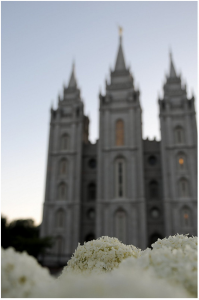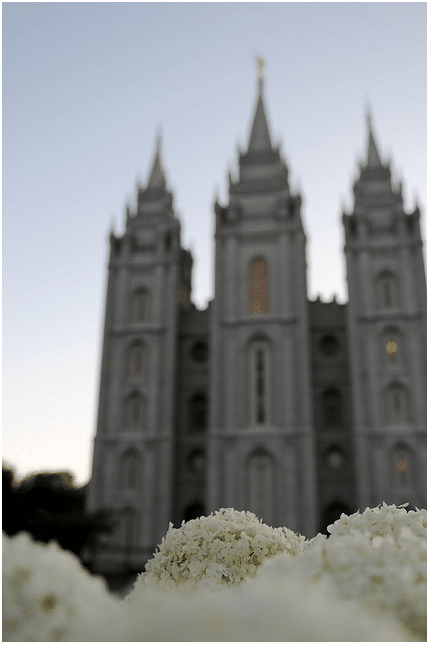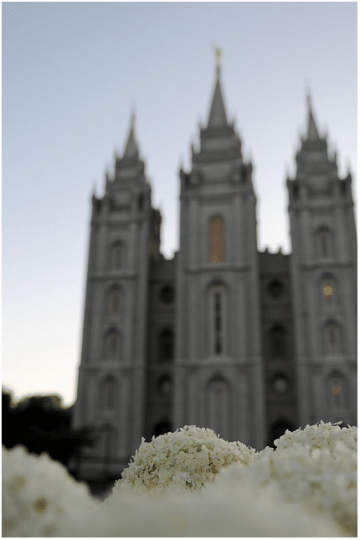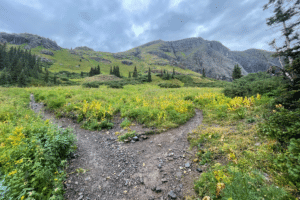 My apologies! I was supposed to have this lesson (here it is on LDS.org as a reference) up a couple weeks ago and have kind of thrown things together, so please feel free to share your ideas in the comments. I’ve put questions I’d ask the class in italics; the rest of my thoughts are in regular font.
My apologies! I was supposed to have this lesson (here it is on LDS.org as a reference) up a couple weeks ago and have kind of thrown things together, so please feel free to share your ideas in the comments. I’ve put questions I’d ask the class in italics; the rest of my thoughts are in regular font.
I had a hard time writing this lesson, so the lesson I would give (as seen below) is pretty unstructured. If you’d like a really thoughtful and well done lesson, you must check out mraynes’ lesson from 2009 here.
At any rate, this is a lesson that requires a lot of sensitivity—the majority of your class members are not going to have sealings to every member of their family. Some family members may not be members of the Church, some may have left, some may not be able to take on these ordinances. I would rely heavily on prayer and the guidance of the Spirit as you proceed and be prepared to gently moderate or mediate insensitive comments made by members of the class.
Introduction
Start with a story about why you love (or why you have a hard time) with the temple.
For example, if I was teaching the lesson, I would share this:
I have always loved to go to the grounds of whatever temple I live near. I love the Arizona temple with Christmas lights, I love the Boston temple in fall and seeing the colors of the hills. Mostly, I just love going to a temple and looking at the lovely building and the well-maintained gardens. Sometimes, I feel like I experience as much peace and insight walking the grounds of the temple as I do if I go in and do a session.
What do you love about the temple?
What is hard for you about the temple?
I would let the class talk about this for a while…share the stories of what they love about the temple, brainstorm about things that are difficult. I think this can be done without discussion sacred aspects of temple worship and could be a time for the Spirit to guide the discussion.
I’ve never been in a temple class like this, and I can’t help but wonder what an unstructured lesson about the temple would be like.
Family History
Again, I’m going for unstructured here:
Because we believe that families can be together forever through the sealing powers of the temple, we believe it’s important to know and find our ancestors.
What do you love about Family History?
What is hard about Family History?
I feel like too much of a heathen to speak about doing Family History for temple ordinances, so I might invite the FH specialist to speak for a few minutes. Or, I would just share my own experiences with something like this…
I’m not so good at temple work for my ancestors, but I’m taking baby steps in the past couple years. One thing that has helped me is to do my Family History in the form of gathering stories. This has helped me see my ancestors as living, breathing, people who dealt with the same issues I do (and worse!).
I’d share one of these stories I’ve written about my ancestors here and here on the Exponent.
Close with a testimony of the temple.
Note: This lesson was originally written for the Relief Society audience in 2010-2011, when the Gospel Principles manual was temporarily used as curriculum for Relief Society, Elders Quorum and High Priest classes. The lesson may require adaptation for Gospel Principles classes, which are mixed gender and primarily serve new members and investigators of the church.






15 Responses
Thank you so much, Emily! I love the lack of structure in this lesson plan. Presenting this in an open manner has much more chance of inspiring an organic and helpful discussion! So often these lessons are presented in a way that is about applying guilt for us for not doing family work, which I think, does not invite the spirit. Thanks for avoiding that 🙂
Well-written, thank you for this.
I think there’s a power that comes with the temple that connects us to the memories of our ancestors and future we hope for our children. American culture does very little to honor our elders, so I like the focus on Malachai’s promise and how this connects generations in a powerful way.
Thanks, Emily!
Thank you so much. I just ran across your blog while googling–I frequently struggle to prepare my lessons and I think this will be a big help!
I did not grow up in an LDS home nor had I ever heard of a Mormon until 1975 when the missionaries found me and I was baptized at the age of 22. I came from a very dysfunctional family (well who didn’t?!) – my mother was a high-functioning alcoholic (school teacher) with questionable morals and about enough maternal instinct to partially fill a thimble, but never-the-less had four children. I was 13, came home from school one day, and my father was gone lock, stock and barrel. He moved out of state to marry his 20 year old secretary – he was 53. I lived in a constant state of shame – never had friends over, cover stories to keep track of when certain questions were asked, many times did not know where my mother was when she went on weekend trips with various “boyfriends” – including a Catholic priest and a married man and ????.
My mother’s lifestyle was a continuation of her own childhood – alcoholic, womanizing father, mother who drank and “looked the other way” and whose own home eventually ended with her parents divorcing. Well that’s hardly the end of anything – usually the beginning of a lifetime of struggles.
My father on the other hand was raised on a farm with a cold-hearted father, but a mother, sister and an aunt who ADORED him. In their eyes he could do no wrong. So his abandoning his own family, looking back now, should have been no surprise. He craved adoration and did whatever he could to achieve it – and at 53 years old I’m sure a little 20-something was just the ticket to make him feel like Adonis! So off he went and didn’t look back.
So here I am the only Mormon in my entire family with a mountain of Temple work to do. And for people who had hurt me terribly. And for people who didn’t even love each other. Truthfully I never felt the need to rush in and “do their work”. No particular reason – wasn’t out of spite or revenge or anything. Just didn’t feel a pressing urge to get going.
Then in May of 2000, my mother was diagnosed with liver cancer. She died the following August. By this time I had been divorced (Temple marriage – 24 years) from my own husband, for 5 years now. Our four children had all left the Church by now. I was working full-time for the first time in 24 years to support myself. Life was not rosy – to put it mildly.
But I locked up my home in Utah and took off for Florida to care for my mother for the last 4 months of her life. It was the best thing I ever did! After years of resentment, bitterness and sometimes pure hatred for her – here I was spending her last days on earth being with her, talking with her and loving her.
In spite of my mother’s behaviors she had a very strong belief in God. As we sat on her couch one day, she was looking off out the window and asked me if I thought God has forgiven her. Well I knew she wasn’t asking if God forgave her, because I already knew that she wasn’t worried about that. She knew God had forgiven her. I think she wanted to ask if I had forgiven her….
With tears in our eyes I just quietly said yes. Without looking at me she reached over to touch my hand.
It was still a few more years, but my new husband and I were baptized for my family members back three generations. I wanted to do the baptisms myself – for us all to go down in those cleansing waters and start new and clean.
And then the day came where my husband, myself and a few close friends went to the Temple to start sealing these family members together.
A Counselor of the Temple Presidency was our Sealer. As I knelt at the altar I was sealed to my parents and for the first time in my life I had the family I never had on earth. For the first time in my life I felt like I belonged to someone….that I belonged to a loving family – that I was a part of something and not alone.
There are no words to describe the spirit and feelings of all of us in that sealing room that day. There were lots of tears, but they were tears of utter joy.
There were many times in my life – especially as each new child came into my own family that I had been cheated not only of loving parents, but that my children had been cheated out of having kind and loving grandparents. But all those feelings have left me and I know that I have a wonderful and loving family waiting for me to spend eternity with….. I know I gave them a chance to find and have the gospel in their lives. I know they are happy now.
Oddly enough, I would not go back and change one day of my life. I like who I am today. I have suffered more than some and nowhere near as much as others, but without my own trials and tribulations maybe that day the missionaries came I wouldn’t have felt I needed them…..and the message they had for me.
Without the Temple ordinances I would never have had the chance to get my family back. The would have been lost to me forever…. I am so grateful for the opportunity we have as members of The Church of Jesus Christ of Latter-Day Saints to not only do something for others, but to help us gain what we ourselves lost at one time in our lives. All I ever wanted was a family and now I have one. And now I have even more help for me to guide and direct me in my own family today.
Jill, this is an amazing story of redemption! Thank you so much for taking the time to share it with us.
I hope you’ll continue to join in on our conversations here 🙂
This is beautiful, Jill. Thank you so much for sharing.
I would like to share a little bit of your testimony and experiences during my lesson. I would like your permission before I do so. Thank you. Sincerely Julane
That is a beautiful story, Jill. Thanks so much for sharing. You have a real gift for writing, and should write a book!
Beautiful story, Jill!
My husband isn’t a member. I have never attended the temple and not done either a name from his family, or from my own lineage that my mother found. I think going to the temple for people who are real to us, perhaps even personally knew, makes it a more “real” experience. And for me, it is helpful to know that I haven’t super-glued people to each other, I haven’t “made” them LDS. They can accept it or not.
I’m not sealed to my husband, obviously. And if he dies before I do, and I do his work, I don’t worry about him accepting it or not. I believe in a loving God who wants the best for me, and if I do my part, blessings aren’t withheld.
What I love about temple work is that I’m doing the easiest version/least confrontational style missionary work I can possibly do. 🙂 That sounds awful. But believe me, for a long time, wearing a BYU t-shirt felt too intrusive. So, I’ve come a long way. (There’s nooo way I’d have a RULDS2 on my car.)
The things that are hard about temple attendance are probably the same things others wonder about on this blog. I love to go with other women and ask my questions in the CR b/c it’s really the only place I can and feel comfortable/respectful in asking. I really wish all of it were read-able. I mean, I could look it up, I’m sure, on the the web, but I don’t feel good about that. But, I think if I could read it, it would help.
I only took out my endowments about 3 years ago, so until our temple shut down a few weeks ago I went pretty regularly, trying to make up for lost learning time. Now, it’s an all-day affair, and not easy to do. I’m trying to make a schedule commitment to do more family history work during those Friday hours I would be going. We’ll see if I can make myself get it done. I stopped b/c I hit a stuck spot and I’m going to have to get some help.
I love going because it’s quiet and I can think and I feel like if I regularly serve in the temple I feel more entitled to ask for what I need, if that makes sense.
Sorry-that went a bit longer than I’d planned!
My mom is the Family History Center director in our town and she always jokes that Family History is the only commandment we outsource. You’d never say “My sister Jane is always dieting, so she does the fasting for our family. My brother has always been good at chastity, so we leave that to him.” Yet we feel perfectly fine saying “My grandma did all the family history already” as though that commandment didn’t apply to us because it is “done.”
My approach with this lesson is to emphasize that there are many different ways of participating in the work of family history and that what you do may vary depending on your phase of life, but that we should all be doing something. We don’t all have to sit in the Family History center for hours on end because for some people that may not be practical. Some of my ideas include:
1)If you still have living parents or grandparents, find out as much as you can. You could type up some questions you’d like them to answer on their own time either written or on a tape recorder. Learn about their lives, not just their names and dates.
2)You can participate in Family History in the classic sense of working on extending your family tree as far as possible
3) You can participate in the church’s indexing program, and you can do as much or as little as you want. This is essentially data entry of parish registers and marriage certificates, and you can spend as little as five minutes a day on it. This makes the work much easier for anyone who is doing their own research.
4) You can offer to take names to the temple for people who may not be able to. The Endowment is always sort of the Family History bottleneck because it takes two hours to do one name, so some people might have a big pile of endowment people waiting for it to get done, I know I do.
5) You can work on creating your own history to tie your hearts to your children. This might take a variety of forms — writing the story of your life, writing a journal, creating a timeline of important events in your life, making a scrapbook etc.
My aim is to encourage the women in my ward to try SOMETHING relating to Family History, even if it as small as creating a Newfamilysearch account.
Another idea I’ve known wards to suggest is to have a Family History specialist come and do FHE with your family to help you get set up with Family Search. You could even get a specialist to talk for 2 minutes in your lesson. Just a couple of ideas. 🙂
Also I normally do not do handouts, but I am going to distribute a list of questions that people can either use to interview a family member or can use as a jumping off point to write about themselves for future generations.
Mhana,
I just got ask to give this lesson Sunday and I loved your idea. I wondered if you had come up with a list of questions yet and would you mind sharing. Thanks
I am the RS president of a small New England branch and I’ve come to dread the phone ringing latte Saturday night or early Sunday morning because it usually means my teacher is not going to show up and the lesson is now mine to teach. So when I cam home last night to a flashing answering machined – well, let’s just say my guess was correct about who might have left a message.
So I turned to the Exponent and am so glad I did. Emily’s unstructured lesson worked great for the class, which is a mix of older, longtime members and investigators, with little inbetween those extremes. The best part was Jill’s story, which I read to the class (without using her name). The spirit was palpable by the time I reached the end and afterwards several people spoke to me about it and shared similar situations. Thank you so much, Jill for sharing your experience and for your authenticity. I strive to “keep thing real” in RS and sisters like you help make that happen.